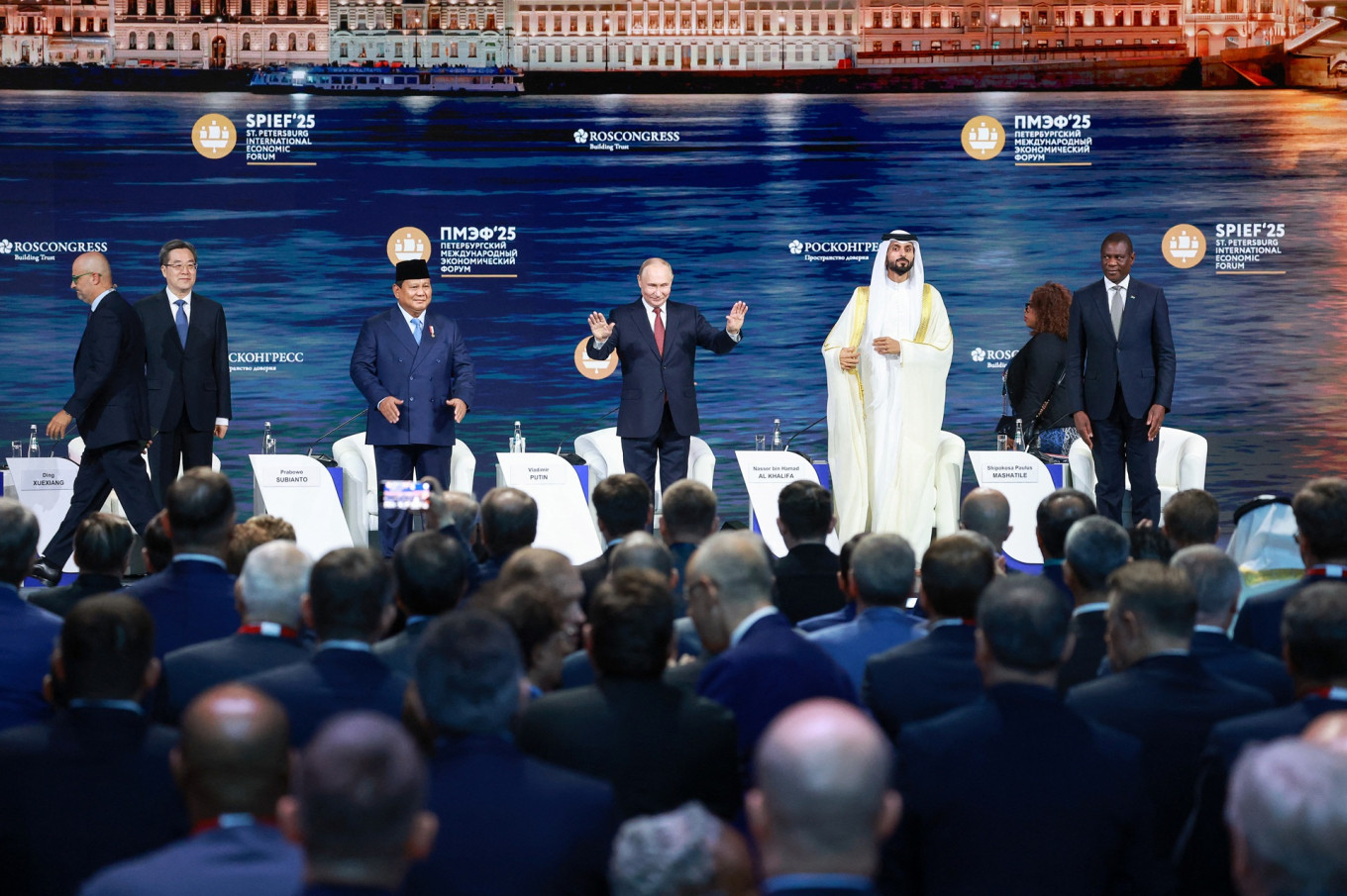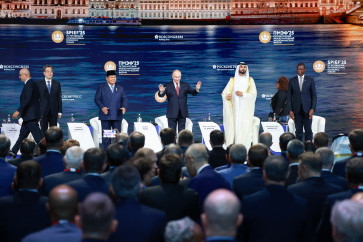Popular Reads
Top Results
Can't find what you're looking for?
View all search resultsPopular Reads
Top Results
Can't find what you're looking for?
View all search resultsWhy the Eurasian security architecture is important for Indonesia
A secure Eurasian continent will inevitably radiate waves of stability to other parts of the world.
Change text size
Gift Premium Articles
to Anyone
 China's Vice Premier Ding Xuexiang (from left), President Prabowo Subianto, Russia's President Vladimir Putin, Bahrain's National Security Advisor Sheikh Nasser bin Hamad Al Khalifa and South Africa's Deputy President Paul Mashatile attend a plenary session of the St. Petersburg International Economic Forum (SPIEF) in Saint Petersburg, Russia, on June 20, 2025. (Reuters/Anton Vaganov)
China's Vice Premier Ding Xuexiang (from left), President Prabowo Subianto, Russia's President Vladimir Putin, Bahrain's National Security Advisor Sheikh Nasser bin Hamad Al Khalifa and South Africa's Deputy President Paul Mashatile attend a plenary session of the St. Petersburg International Economic Forum (SPIEF) in Saint Petersburg, Russia, on June 20, 2025. (Reuters/Anton Vaganov)
I
n recent years, we have witnessed a process of chaotization in international relations. This is reflected in the emergence of new and the intensification of simmering regional conflicts, the breakdown of the global trade system and value chains built over decades, the division of societies and internal instability in many countries, and the conflict between the norms enshrined in the United Nations Charter and newly created “rules”.
This has several root causes. One is the collapse of the Euro-Atlantic security system due to the serious mistakes of Western elites, who chose to ignore Russia's interests and disrespect the principle of equal and indivisible security in the Euro-Atlantic. The essence of this principle is that every state must be guaranteed an equal right to security in accordance with its national interests. Therefore, no state or group of states should gain advantage over others in the exercise of this right.
At the same time, strengthening one's own security at the expense of the security of others and assigning any country, group of countries or organization preferential responsibility for maintaining peace and stability is unacceptable. Between 1999 and 2024, the NATO alliance underwent seven waves of expansion, doubling its membership from 16 to 32 states. Furthermore, the United States unilaterally withdrew from the 1972 Anti-Ballistic Missile Treaty and the 1988 Intermediate-Range Nuclear Forces Treaty.
Legally binding security guarantees were something NATO allies were prepared to provide only to those who are part of the alliance. Overall, the West believed that any possible security architecture in Europe should be NATO-centric and, accordingly, presuppose Washington’s controlling participation in ensuring political and military stability. The extent of this catastrophic miscalculation is evident today.
Russia, however, not only criticized and warned, but also proposed options and constructive solutions, emphasizing the importance of developing a mechanism for European and global security that takes into account the interests of all countries.
Meanwhile, Western partners ignored all Russian initiatives, such as, in particular, the draft treaty on European security of 2008 or the draft agreements between Russia and the US and NATO on security guarantees of 2021. As a result, due to the unwillingness of participants in Euro-Atlantic security mechanisms to consider Russia’s vital interests, they were completely discredited.
As a result, Eurasia finds itself in a situation where local tensions could easily escalate into a full-scale conflict, calling into question the further development of the entire continent, which makes a significant contribution to global economic growth.


















